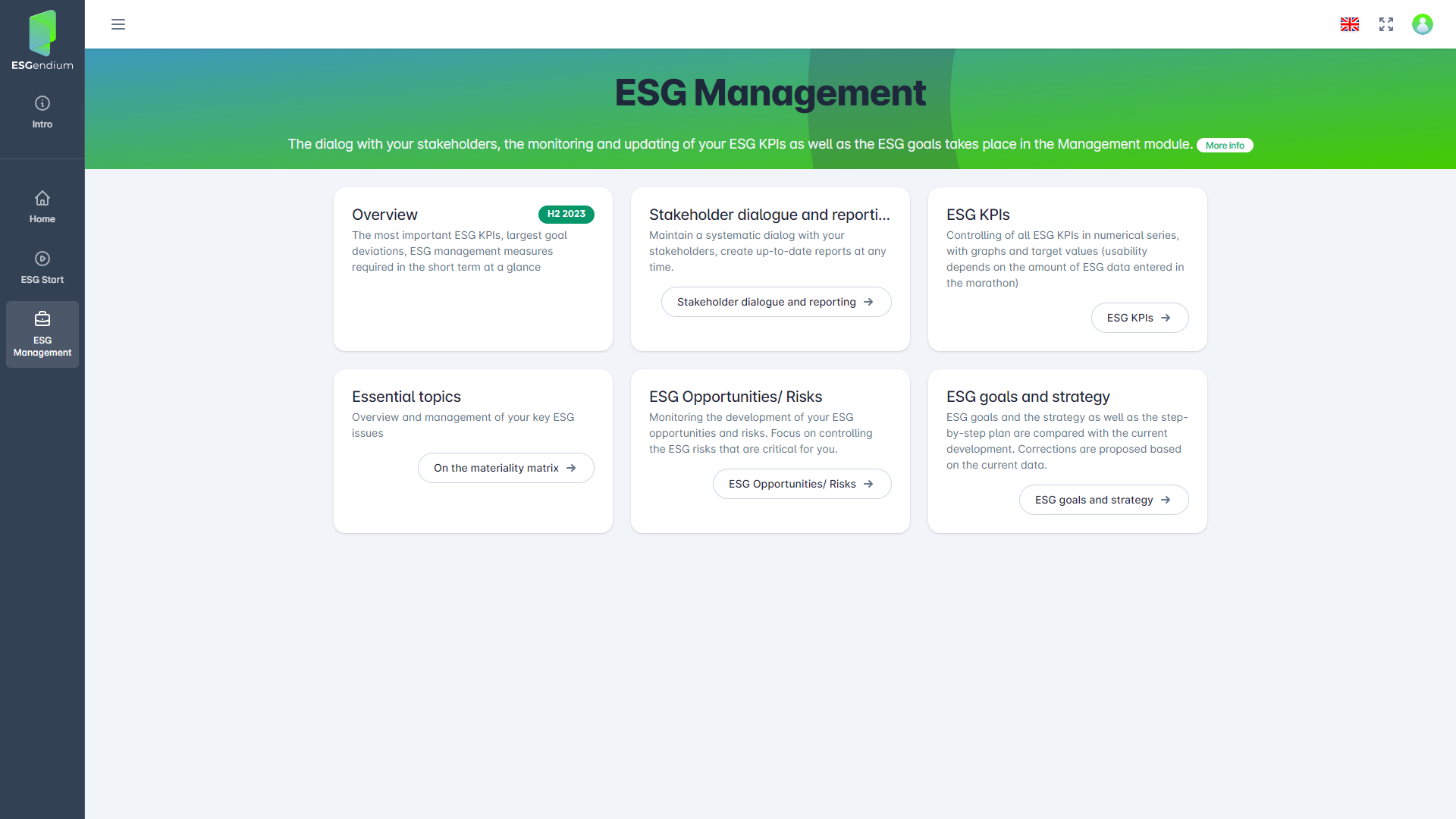



Internal or external sustainability/ESG experts required
ESG setup including an ESG report in 2 - 4 months
Kosten für ersten Ansatz 10.000 bis 20.000 €
Ongoing costs
For example, costs for ESG software or internal or external sustainability experts
Without internal or external sustainability/ESG experts
No prior ESG knowledge required
Initial ESG setup including a basic ESG report in just 2-3 hours
Komplettes Jahresabonnement für nur 990€ enthalten
Keine weiteren laufenden Kosten
Software-based and automated management of ESG data
The ESG Sprint is an automated process that enables companies to set up an initial sustainability approach in around 2 hours - without any prior knowledge or internal or external sustainability consultants. This sustainability approach is basically a solid foundation that every company needs in order to become holistically sustainable. The sprint helps companies to recognize and implement the following things:

In the "ESG Management" module, the sustainability data recorded in the "ESG Sprint" for the individual steps can be viewed again separately and continuously updated if there are any significant changes in the company, such as a change in the number of employees, new locations, taking out a loan or similar. A new ESG report can then be downloaded in no time at all and made available to stakeholders at any time on request.
In addition, ESGendium informs users of important regulatory changes that may affect companies. This makes internal or external sustainability consultants superfluous or takes a lot of work off their hands.

Now that an initial ESG setup has been created with the "ESG Sprint", the ESG Marathon builds on top of it. It allows to enter comprehensive ESG data and conduct an actual stakeholder survey.
The purpose of the ESG Marathon is to go into the depths of ESG and to concretize one's own ESG data.
In contrast to the ESG Sprint, the ESG Marathon is, as the name suggests, a continuous and strategic process that leads companies towards a more sustainable orientation. The ESG Marathon also serves as a springboard for the implementation of national or international frameworks, standards or regulations (which, however, are not relevant for most SMEs), such as:
How to get started: Get started with the free trial version first. If you like it, you can then switch to the full version.


